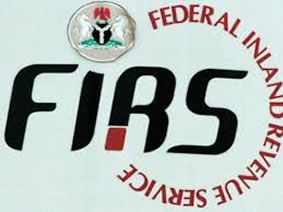
A recent directive by the Federal Inland Revenue Service (FIRS) to landlords and property agents to charge 6% stamp duty on all tenancy and lease agreements has been criticised by many as grossly insensitive and irresponsible by many stakeholders including the Trade Union Congress and other labour groups. The FIRS directive articulated the various stamp duty types and their rates including appraisement or valuation of property (1.5%), certificate of occupancy, partnership (N1,000 flat rate), gift of land (1.5%), legal mortgage (0.375%), legal mortgage (up stamping) (0.375%) and deed of conveyance or transfer on sale of property (1.5%). Others include memorandum of understanding (related to land, sales, joint venture, surrender, subdivision agreements (1.5%), power of attorney (irrevocable/land related) (1.5%) and sales agreement (1.5%).
Doubtless, bringing up these taxes at this time is really insensitive on the part of government. While the taxes listed above are impactful on the generality of Nigerians, the one with the most impact on the ordinary Nigerian is the 6% stamp duty on tenancy and lease agreements. From the directive, the burden of payment is on the impoverished beneficiary of the tenancy or lease agreement while the responsibility of collection and remittance falls on the landlord.
The demand for shelter is considered to be one of the basic needs of man alongside food and clothing, according to Maslow’s hierarchy of needs. And so the provision or guarantee of shelter should be one of the priorities of any sensible government. Hence, using simple economic parlance, the demand for shelter is price inelastic implying that it is an essential commodity. Against this background, the move by the FIRS to shore up revenue for the Federal Government through this channel is totally uncalled for. Nigerians are still suffering from the lockdown effects of COVID-19 with many corporate organisations shedding jobs as well as slashing wages and salaries of workers. Some private sector organisations have not even paid the minimum wage due to the vicissitudes of the business environment with uncertainty staring most business operators in the face. Does it mean that the craze to shore up revenues for government should imply the further impoverishment of the ordinary man? Don’t we need a human face in the conduct of fiscal policy? These are new definitions of governance, courtesy of the Buhari administration without transparent palliative or stimulus package.
This is a government that has refused to cut the cost of governance in a period of economic emergency. It even went ahead and increased the size of the 2020 Federal Budget from N10.5 trillion to N10.8 trillion in spite of the downturn in the global oil market, worsened by the COVID-19 pandemic. The gaps in the expenditure programmes of government are thus being filled by borrowings, more borrowings and increased taxation even when the economy is headed in the direction of a recession and people struggling to eke out a living. Under this government, salaries and emoluments of political office holders are untouched, security votes are still intact, the presidential fleet is untouched and insecurity has increased with the country turned into a killing field and the roll call of widows and widowers increasing in many parts of the country. As a consequence, many households are losing their breadwinners in these incidences. Does government thus expect those who have lost their jobs or widowed or with their salaries slashed during this period to cough out more money to pay 6% stamp duty on their rents? It is also instructive to note that in other climes, taxes are being waived for the citizenry and palliatives are being continued through unemployment benefits and other social safety nets.
In as much as collection of taxes is allowed under the Act establishing the FIRS, does it mean the law should be applied irresponsibly? Does it mean there are no other sources available to the FIRS to raise the taxes, such as expanding the tax base particularly for stupendously rich politicians who pay next to nothing as taxes by engaging in tax avoidance with the connivance of tax consultants and lawyers who explore loopholes in the law to reduce their tax liabilities? Why are the authorities in this country so insensitive when it comes to the welfare of the people? Most countries have frozen rents and mortgage payments during this period of lockdown from COVID-19. Maybe members of the FIRS have luxury homes and deep pockets. It can be noted that many landlords are even sensitive to the plight of their tenants. Some conscientious and well-meaning landlords have deliberately refused to collect rent from their tenants since January 2020 due to these COVID-19 pandemic effects.
In fact, some daring and impoverished tenants are ready to slug it out with their landlords as regards the payment of rent. What then would the situation be like when stamp duty charges are added to the normal rents? It’s a case of “adding salt to injury.” The times are really hard for the ordinary Nigerian and this government needs to come to terms with reality. Does the Federal Government want to reduce the population through killer taxation? Do they know the number of tenants who can’t renew rents all over the country at the moment? Government should note that an average worker or small business has to contend on a regular basis with choking multiple taxation on the households and the business sector. The government should fix the economy and make it productive. A rentier state has no business taxing the citizens already reduced to abject poverty status. All told, government should unleash productivity and provide jobs before exploiting the tax routes.
END

Be the first to comment